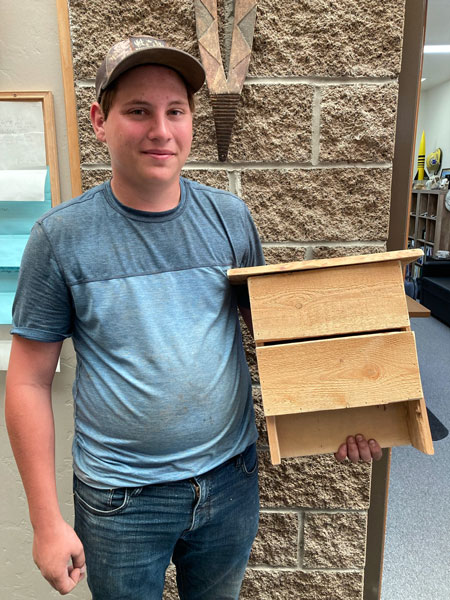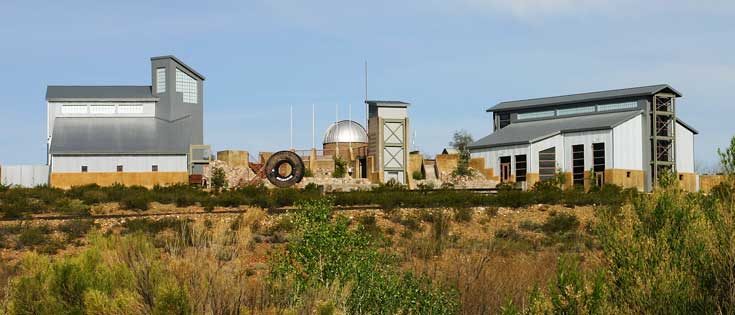EAC’s Discovery Park Campus recently had 10 bat boxes installed to help with the declining native bat population.
Contributed Article/EAC
Thatcher – Luke Collins, of Pima, recently completed the six-week, Southeastern Arizona Youth Land Stewardship (S.E.A.Y.L.S.) Internship with the Gila Watershed Partnership. One of the concluding requirements is a service project benefiting the community and Collins decided to build and place ten bat boxes at the EAC Discovery Park Campus to help with declining populations of native bats.
These placements will also help the declining number of native agave plants that rely on bats for pollination.

“Bats often get a bad rap, but they are actually amazing creatures that like to keep to themselves and do great things for the humans around them,” said Collins. “Bats native to the Gila Valley are vital for the agave plant and the state cactus of Arizona, the saguaro, for pollination and are expert hunters – one bat can eat up to 1,000 mosquitoes in an hour, and lots of other flying insects, beetles, and even centipedes!”
“We’re really excited that Luke chose the Discovery Park Campus for his bat box service project,” said EAC Discovery Park Campus Director, Paul Anger. “With bats being nocturnal, the boxes will provide day-time nesting places so the bats can feast on the insects and pollinate the plants on the campus at night, and visitors can enjoy the area during the day without the mosquitoes and other insects.”
For more information on the EAC Discovery Park Campus go to eac.edu/discoverypark or call (928) 428-6260.







